Vietnam Guide - All you need to know about Vietnam
Vietnam is a peaceful and friendly country located in the Southeast Asia area and also a member of ASEAN. Filled with captivating natural beauty and the hospitality of locals, Vietnam has been one of the most gravitative Southeast Asian tourist attractions. What makes Vietnam so tempting to tourists is the various forms of experience, from beautiful sandy beaches for peace-seekers to adventurous mountains for trekkers, from dynamic cities to tranquil villages.
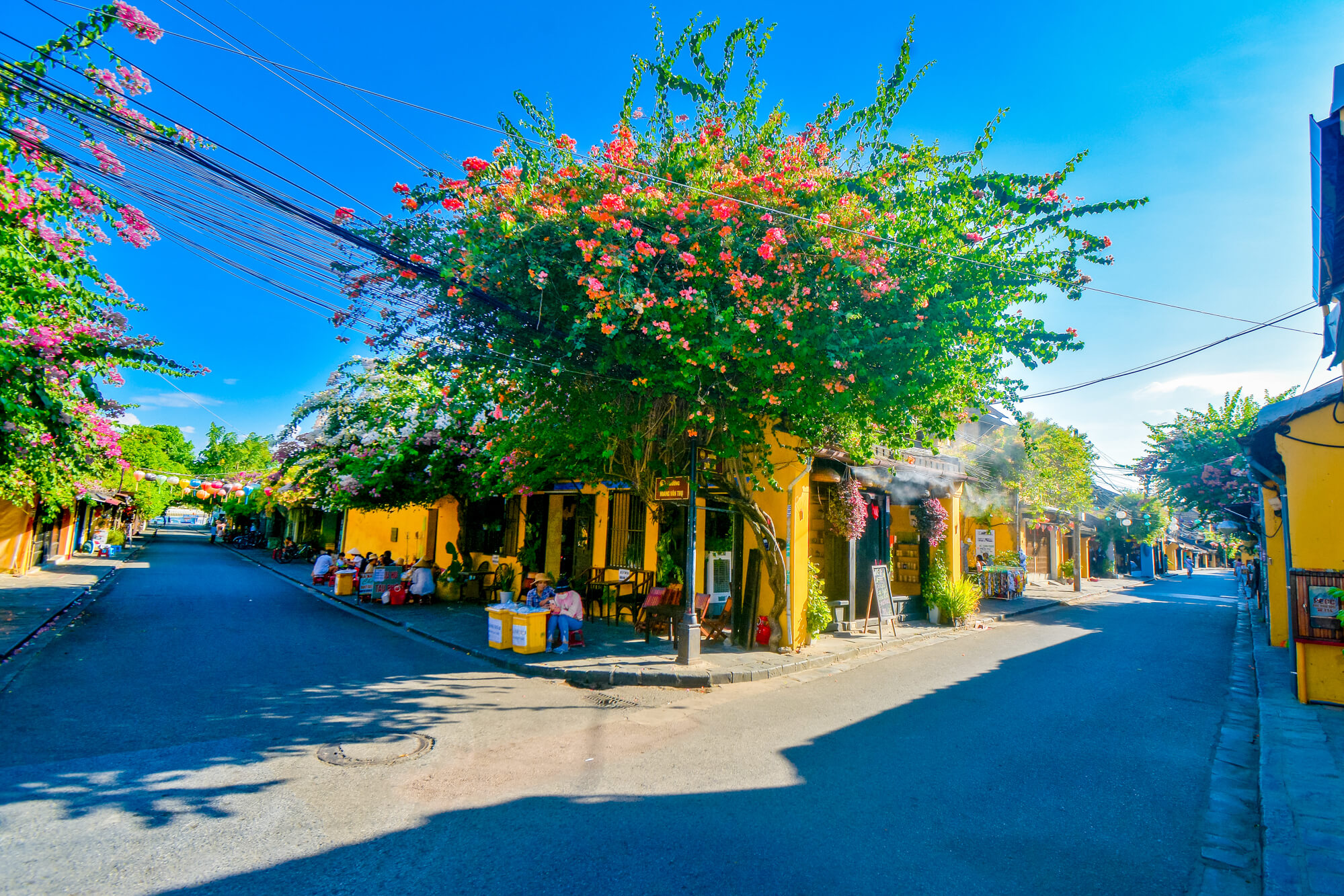
Vietnam transquil villages
Vietnam History
Hung Vuong was the founder of the Vietnamese nation and the first king of the Hung dynasty (2879-258 B.C.). During this early period, irrigation of rice fields through an elaborate system of canals and embankments, which somewhat impacts present Vietnamese culture.
After a few first dynasties, in 111 B.C., the Chinese conquered and colonized Vietnam for more than one thousand years. This period resulted in Chinese affected values, norms, moral compass in Vietnamese society.
In the 1800s, the French started to take over and integrate more Western education, religion (first introducing Christianity), and economic development (exporting tobacco, indigo, tea, and coffee). After an uprising by nationalists in August 1945, Vietnam officially announced The Proclamation of Independence of the Democratic Republic of Vietnam on September 2nd, 1945. However, the French tempted to gain control back and started an invading war for eight years long. Despite gaining independence after World War II, France still ruled the country until Northern Vietnamese soldiers forced the South Vietnamese government – who supported by the US, surrendered on April 30, 1975. This was a turning point for history when the North and the South united and became Vietnam as it is today.
Top attractions in Vietnam
With a long, painful but brave history through such wars, it would not be completed for tourists without visiting Vietnam's historical sites. Wars resulted in many ‘creepy’ yet interesting historical points, from hand-dug tunnels to the brutal prison complex. Here is a list of the 4 most preserved historic ruins for tourists to explore:
Firstly built in the 1940s during the French colonial period, Cu Chi tunnels is a complex underground tunnel network for Vietnamese soldiers and locals. The thrilling tunnels with narrow space, darkness, and complex network design will surprise you, knowing the underground network was built only by farmers and soldiers to avoid enemies and war damage.
During the French colony, Hoa Loa Prison witnessed the incarceration of the US pilots and many Vietnamese nationalist leaders. Regardless of restorations, Hoa Lo prison still offers tourists a sense of suffering, dark and ruthless torture with wax figurines.
- Con Dao Prison Complex
Visiting the peaceful town with beautiful sandy beaches, people would not believe when informed Con Dao is “the true hell on Earth” many years ago. From tiger cages to the separated cow shed, horrific scenes of fettered wax figurines will bring about thrilling yet sympathetic feelings for the prisoners to tourists.
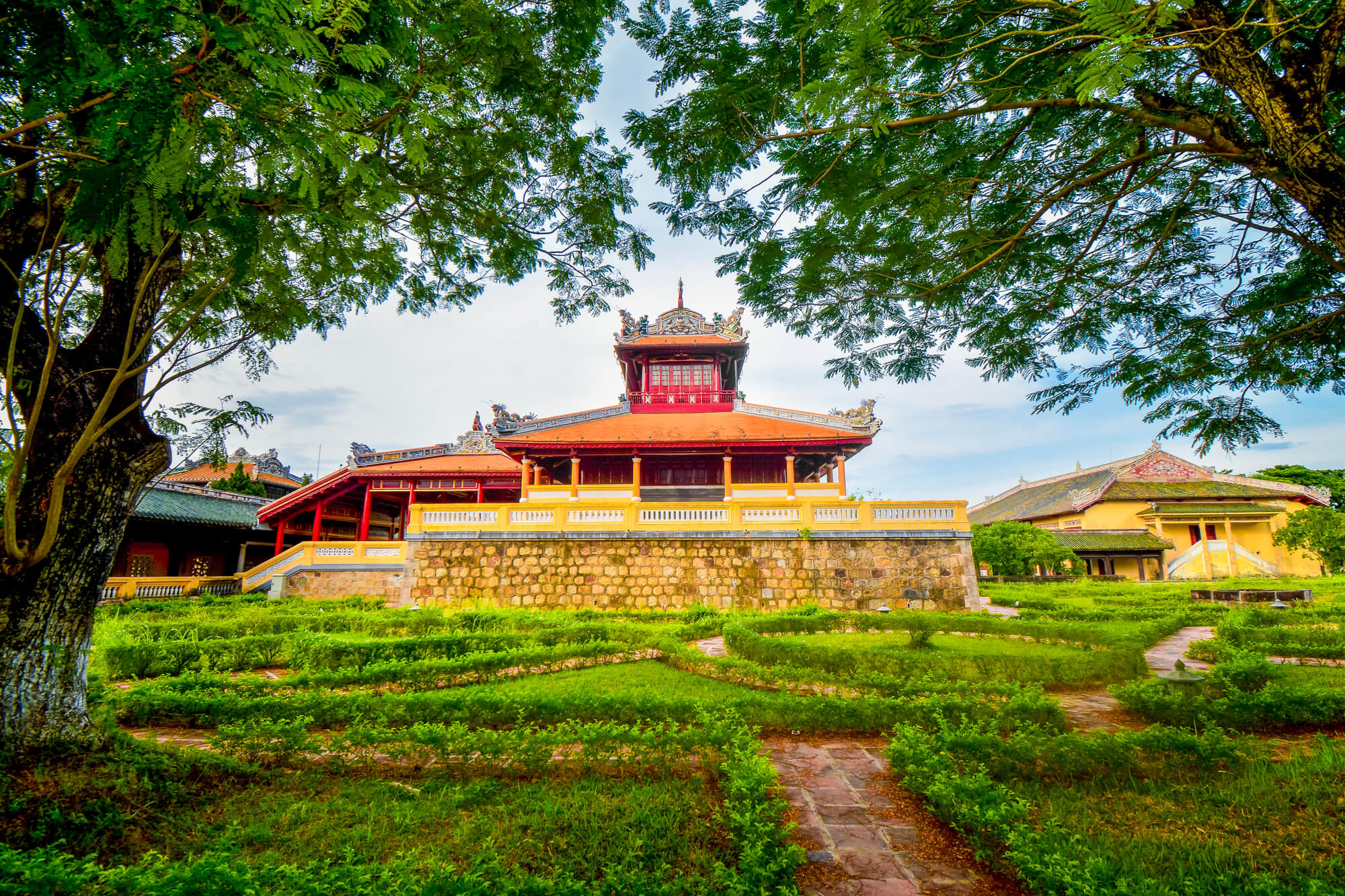
Hue Imperial City
Constructed in 1804, the Hue Imperial Citadel was Vietnam’s last royal dynasty’s residence for 143 years. Including 148 buildings, the Citadel is a complex system of residence, courts, temples, and pagodas. However, under French rule and Vietnam War, only 20 buildings survived from severe damages. In 1993, UNESCO designated the Citadel as one point of the World Heritage List. Seek more about the Vietnam royal dynasty? Hue Imperial Citadel is exactly where you need to come.
Vietnamese Culture
Vietnam has 54 official ethnic groups, of which the majority is Kinh/ Viet (ones you may have met the most as tourists). Thanks to the various races, Vietnamese culture is a specially mixed bowl with many flavors waiting for foreigners to taste. Vietnamese customs of weddings, funerals, holidays, and rituals all are attached to the village community rather than independent ideal. For example, in the earlier decades, marriages were not only due to lovers’ desire but also affordable to the families’ interest and demand, especially for the males.
As a multi-culture society, Vietnamese beliefs and religions are plentiful and prosperous. There are 37 religious organizations and sects with over 24 million believers, 83,000 officials, 250,000 dignitaries, and 46 religious dignitary training schools, and 25,000 worship places recognized by the State of Vietnam. Currently, the Vietnam religion consists of 6 major ones: Buddhism; Catholic; Protestantism; Muslim; Caodaism; and Hoa Hao Buddhism. Besides religion, the Vietnamese also worship their ancestors at home to commemorate their origin and because they believe in life after death.
The rich history and various artistic manifestations are best reflected in its festival. If you visit Vietnam during any of these periods, consider yourself lucky for a much more interesting trip compared to other times. You will love the Tet holiday spirit, when everyone indulges in rituals such as fireworks, visiting temples, giving away lucky money, decorating houses with beautiful flowers, and fruits. Mid-Autumn Festival (about mid-September) is also a fun trip for your children when kids carry paper lanterns across the town, colorful lion dances on the street, and families enjoy Moon cake together under full moon sights. If you are looking for more adventurous festivals, highland areas might be a good place for you also.
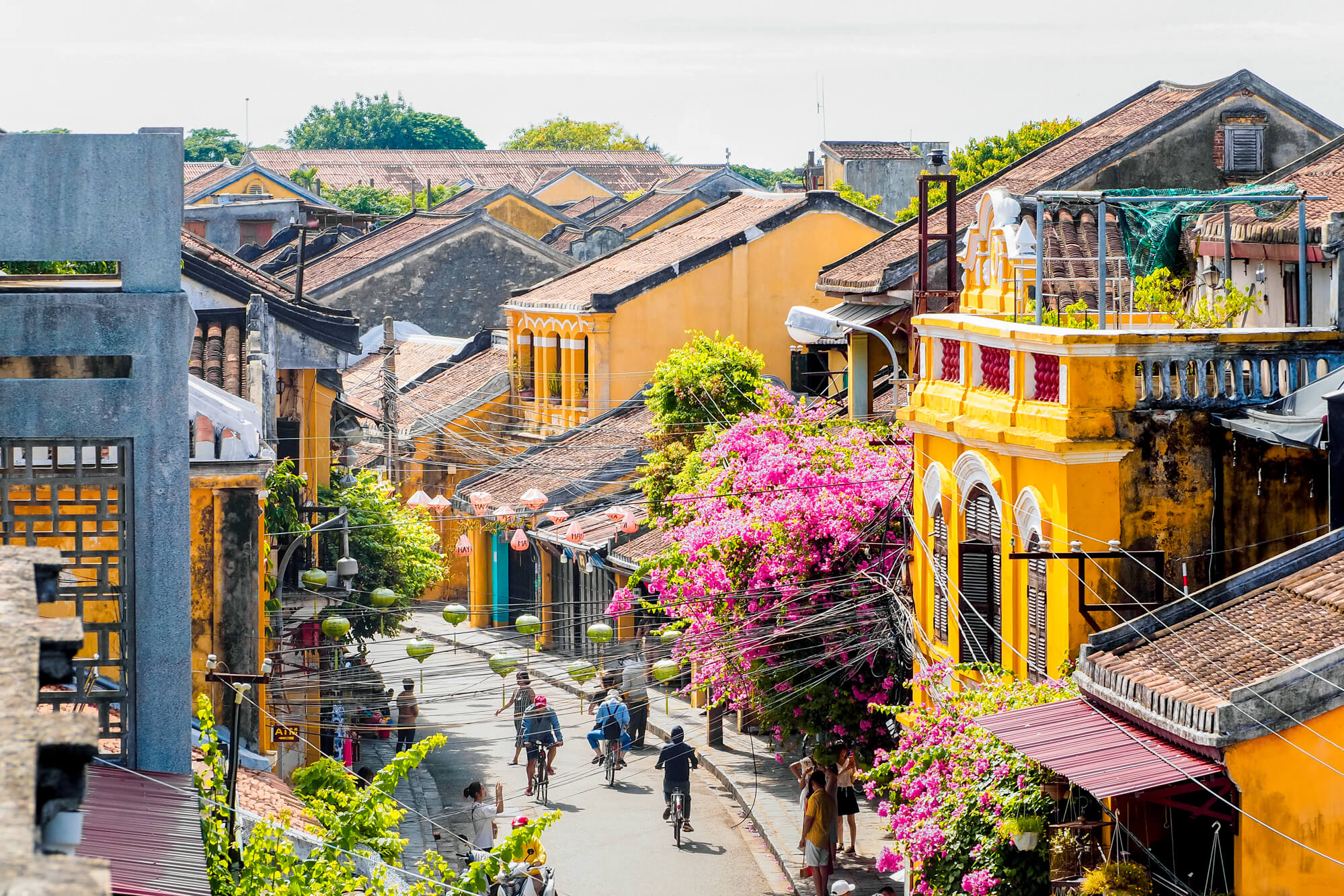
Vietnam Local life
Vietnam Weather
Season differs dramatically from North to South. There are 4 seasons in the North, with extreme coldness in Winter and Spring then coming extreme heat in Summer. Therefore, tourists usually prefer traveling to the North in Autumn for more comfortable weather.
On the other hand, the South seems to be more gentle with only 2 main seasons: rainy season and dry season. If you want to enjoy a beautiful sunny trip, remember to book your flight between April to September.
Having the most beautiful long beaches across different cities, the middle area of Vietnam unfortunately often receives storms in rainy seasons. Therefore, it is better for travelers to be aware and check in at good times.
Read more about What is the best time to visit Vietnam?
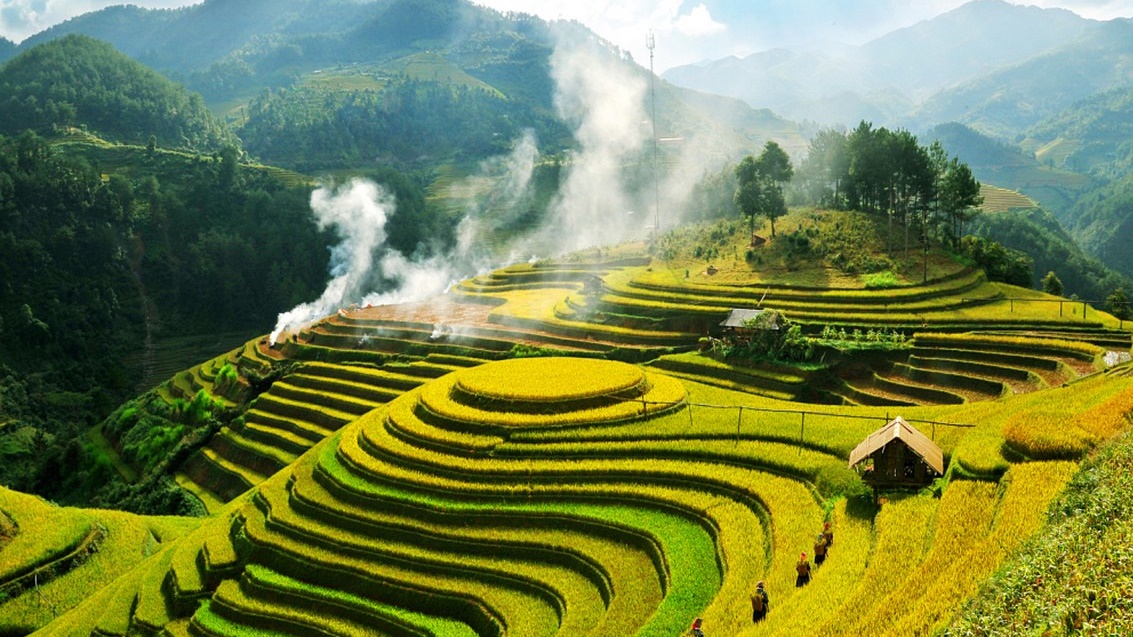
Vietnam Rice Terrace Fields
Vietnam transportation
Famous for the crazy crowded traffic, you should definitely not riding any bikes, even when you are comfortable with motorbikes. Here is a list of local transportation to get you around.
- Cyclo: A bicycle rickshaw that gives you a full view of the city that you are wandering around. Cyclo riders can usually speak basic English since riding cyclo is only for foreign tourists. Cyclo tours organized by tourism or hotels can give you a more comfortable experience with more fluently English-speaking riders and considerable prices. The only disadvantage is that it is slow, not suitable for a busy day.
- Xe Om: A motorbike taxi which gives you a real Vietnamese local ride. There are many Xe Om around tourist areas, they often ask whether you want a ride even before you recognize them. However, remember to ask for the price (and maybe bargain) before jumping on their bikes. Nevertheless, you can book a Grab bike for transparent cost and clear location pick-up/ drop-down points.
- Taxi: Vinasun and Mai Linh are two nationwide companies with reputations. They also have applications for pick-up/ drop-down points convenience. The fare will not be too different from booking a Grab car.
Vietnam travel tips
- Don’t drink tap water: Bottled water is available everywhere with only 0.25 cents. Don’t risk drink tap water, locals don’t even drink it.
- Watch your belongings: Vietnam is safe with friendly people and a peaceful lifestyle. However, there is still petty theft waiting for your distraction. Always have your belongings in your eyes, keep your backpack in front of your chest when in crowded areas such as the bus, train station, ...
- Be aware of counterfeits: Not only apply for Branded items, but counterfeit tour agencies would also be the worse thing that can happen to a tourist. Book everything through a worldwide trusted supplier so you won’t have to regret it.
- Don’t touch anyone’s head: It is considered irritating when you touch someone’s head, especially the elders.
-
Vietnamese official currency is Vietnam Dong. There are many Currency Exchange stations in tourist areas or city centers. You should exchange Vietnam Dong for better rates compared to exchanging abroad the country.
Recommended Vietnam Tours
-
 Highlights of Vietnam from North to South 12 days9.4Excellent - 157 reviewsHanoi - Halong Bay - Hoi An - Hue - Ho Chi Minh City - Cu Chi…/pax
Highlights of Vietnam from North to South 12 days9.4Excellent - 157 reviewsHanoi - Halong Bay - Hoi An - Hue - Ho Chi Minh City - Cu Chi…/pax -
 Real Taste of Vietnam 13 days9.5Excellent - 19 reviewsHanoi - Halong Bay - Hue - Hoi An - Ho Chi Minh City - Cu Chi…/pax
Real Taste of Vietnam 13 days9.5Excellent - 19 reviewsHanoi - Halong Bay - Hue - Hoi An - Ho Chi Minh City - Cu Chi…/pax -
 Best of Vietnam and Cambodia 15 days9.5Excellent - 126 reviewsHanoi - Halong Bay - Hoi An - Ho Chi Minh City - Mekong Delta…/pax
Best of Vietnam and Cambodia 15 days9.5Excellent - 126 reviewsHanoi - Halong Bay - Hoi An - Ho Chi Minh City - Mekong Delta…/pax
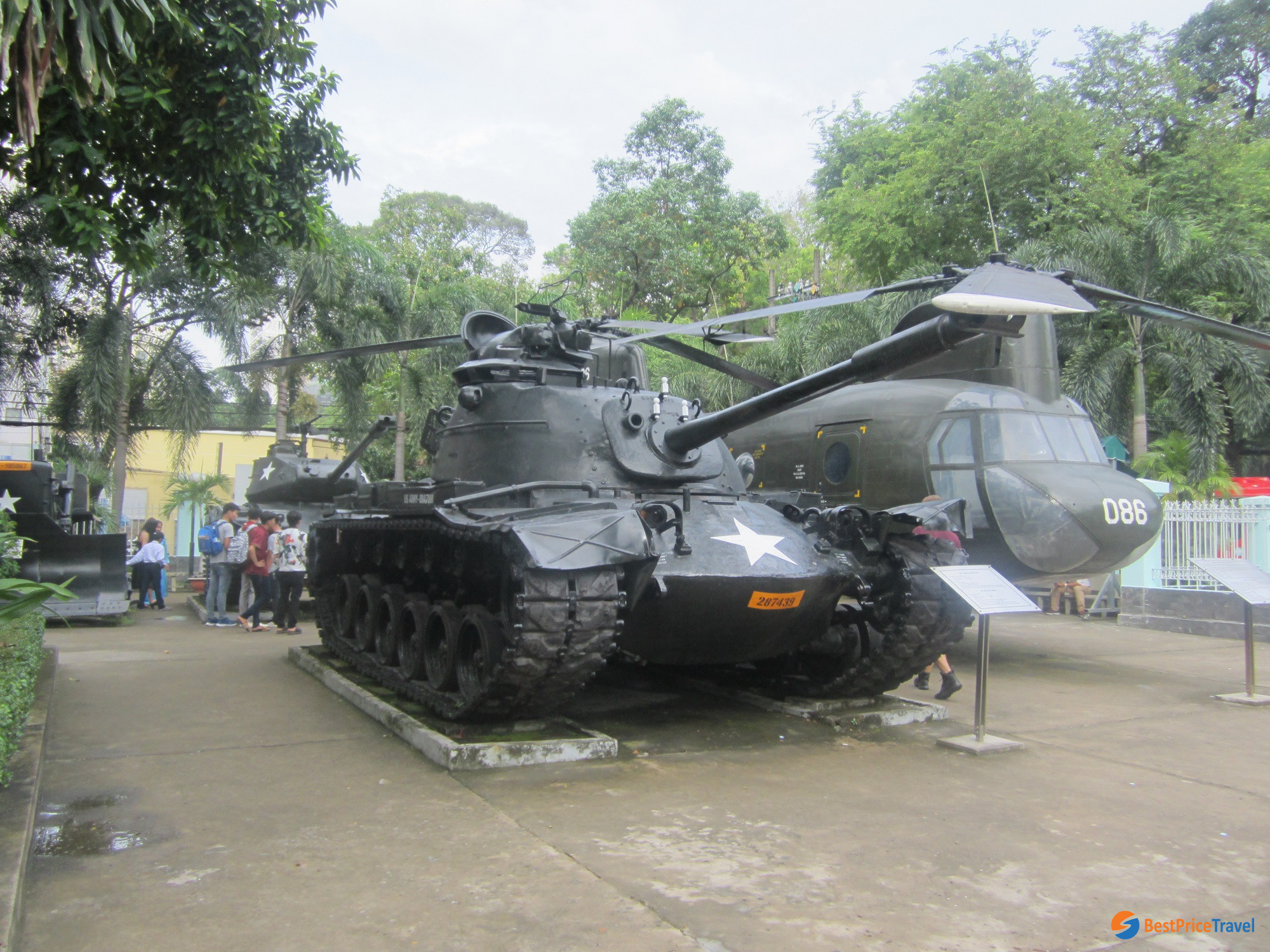
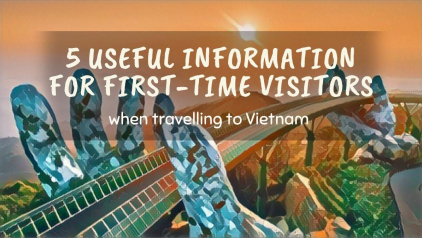
![10 Best Destinations to Visit in Vietnam 2025 [Should Not Miss]](https://d13jio720g7qcs.cloudfront.net/images/guides/422_238/601288fbcfb2f.png)
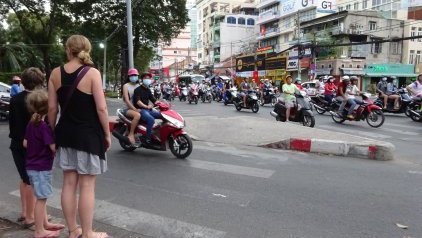
![Top 20 Best Things To Do in Vietnam [Must-do]](https://d13jio720g7qcs.cloudfront.net/images/guides/422_238/5f4874ab90695.jpg)